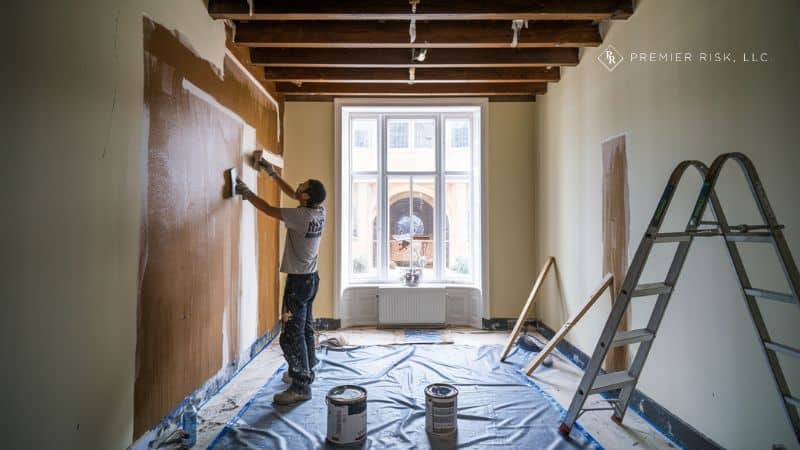Renovating your home is an exciting opportunity to enhance its value, functionality, and appeal. However, many homeowners overlook how these changes can impact their home insurance. Whether you’re upgrading your kitchen, installing a pool, or adding a new room, these improvements may increase your home’s replacement cost, introduce new risks, or even qualify you for discounts.
Understanding how renovations affect your insurance ensures you stay protected and avoid costly surprises. In this article, we’ll explore five common renovations that can impact your insurance and share actionable steps to safeguard your home.
Why Renovations Affect Home Insurance
Home renovations often increase the value of your property or introduce new risks, which means your current insurance policy may no longer provide adequate coverage. For example:
- A higher property value may require increased dwelling coverage.
- Adding features like a pool can elevate liability risks.
- Upgrades such as smart home technology may qualify for discounts.
By updating your insurer before and after renovations, you can adjust your policy to reflect these changes and ensure full protection.
5 Renovations That Can Impact Your Insurance
- Kitchen and Bathroom Upgrades
Renovating your kitchen or bathroom with high-end finishes or expensive appliances increases your home’s replacement value.
Why It Matters: If your dwelling coverage doesn’t reflect these upgrades, you might pay out-of-pocket to rebuild or replace them in the event of a disaster.
What to Do: Inform your insurer about these changes and provide documentation like receipts and photos to ensure your policy is updated - Building a Pool or Hot Tub
Adding a pool or hot tub enhances your property’s appeal but also increases the risk of accidents. This makes your liability coverage especially critical.
Why It Matters: Your policy needs to account for the additional liability risks associated with pools.
What to Do: Add or increase umbrella liability coverage to protect against potential claims related to pool accidents. - Home Additions or Extensions
Building an extra room or expanding your living space adds square footage, which increases your home’s replacement cost.
Why It Matters: If your insurer isn’t notified, you may be underinsured, leaving you exposed during a claim.
What to Do: Work with your insurer to reassess and adjust your dwelling coverage based on the new value of your home. - Installing a Home Office or Garden Office
Creating a home office or garden office may require coverage for specialized equipment or liability protection if clients visit your home.
Why It Matters: Standard home insurance often doesn’t cover business-related liabilities or high-value office equipment.
What to Do: Explore endorsements or riders that specifically cover home offices and their unique risks. - Smart Home Technology
Adding smart technology like security cameras, fire alarms, or water sensors can enhance safety and potentially lower your premiums. However, upgrades like solar panels may require additional coverage.
Why It Matters: While some tech upgrades lower risks, others may increase your home’s replacement cost.
What to Do: Notify your insurer about smart home installations to explore discounts or ensure proper coverage for new systems.
Common Mistakes Homeowners Make with Renovations and Insurance
- Failing to Inform the Insurer: Leads to underinsurance during a claim.
- Assuming Standard Coverage Is Enough: Some upgrades, like pools or solar panels, require specific endorsements.
- Overlooking Liability Risks: Not updating liability coverage for features like a pool can be costly.
- Skipping Documentation: Without proof of upgrades, claims could be denied or underpaid.
How to Protect Yourself and Your Home After Renovations
- Document Everything: Take photos and keep receipts of all renovations.
- Contact Your Insurer Early: Discuss potential impacts before starting your project.
- Reassess Your Coverage: Ensure dwelling, liability, and personal property limits match your upgraded home.
- Explore Discounts: Check if safety-enhancing upgrades qualify for lower premiums.
- Consider Additional Policies: Add riders or umbrella insurance for high-value items or increased liability.
Also Read: Unlocking Your Dream: 5 Essential Tips for First-Time Homebuyers
Secure Your Dream Renovations with Confidence
Home renovations can transform your living space, but they also require careful attention to your insurance policy. Updating your coverage ensures your home is fully protected and your investment is secure.
At Premier Risk, LLC, we specialize in helping homeowners navigate the complexities of insurance. Contact us today to review your policy and ensure you’re covered for every step of your home improvement journey.










